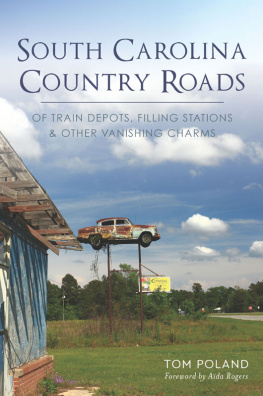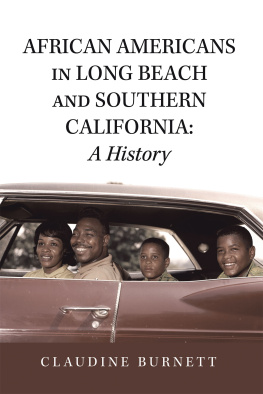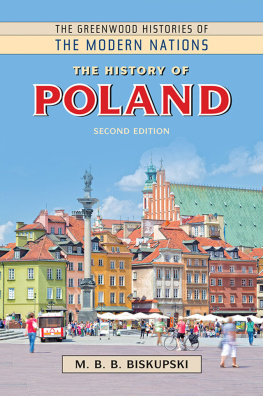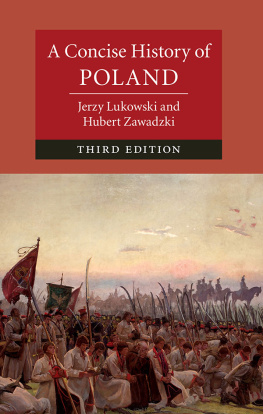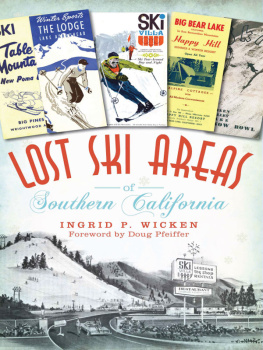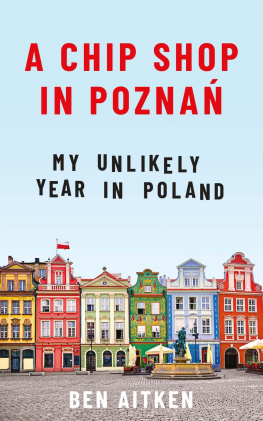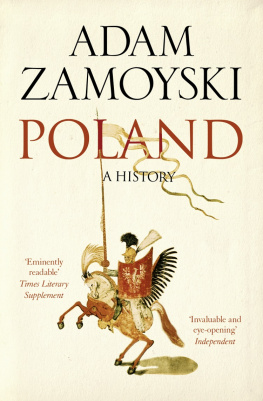GEORGIALINA
Georgialina

| A SOUTHLAND
AS WE KNEW IT | 
|
Tom Poland


Wille Morris might well have written, Just as our parents and grandparents did, we rock on the front porch and recall old times as lightning bugs fire up and heat lightning glows on the horizon.
PHOTOGRAPH BY ROBERT C. CLARK.
2015 University of South Carolina
Published by the University of South Carolina Press
Columbia, South Carolina 29208
www.sc.edu/uscpress
24 23 22 21 20 19 18 17 16 15
10 9 8 7 6 5 4 3 2 1
Library of Congress Cataloging-in-Publication Data
can be found at http://catalog.loc.gov/
ISBN 978-1-61117-594-3 (paperback)
ISBN 978-1-61117-595-0 (ebook)
Original versions of the columns, features, and essays in Georgialina: A Southland as We Knew It first appeared in the following publications: Like the Dew: A Journal of Southern Culture and Politics; Blythewood Leader; Lincoln Journal (Lincolnton, Georgia); McCormick Messenger; Midlands Life; Midlands Biz; Sandlapper; South Carolina Wildlife; and Smiles Magazine.
Front cover photograph by Robert Clark
For Mom, who faithfully clipped and saved every column... even the ones she didnt like
Where Georgialina Began
The Classic South... Lincoln County, Georgia, backcountry
Where Georgialina Is
Youll find Georgialina in Georgia and South Carolina on both sides of the Chattooga on down and across the Savannah River into the South Carolina heartland and lowcountry all the way to rice country. It lives there, and it lives in the heart.
In the South, perhaps more than any other region, we go back to our home in dreams and memories, hoping it remains what it was on a lazy, still summers day twenty years ago.
Willie Morris, North toward Home
CONTENTS

Swinging to and fro beneath a stout oak limb kicked up a breeze that made a sweltering day more tolerable.
PHOTOGRAPH BY ROBERT C. CLARK

| A SENSE OF PLACE, A SENSE OF LOSS | 
|
Does a Southland live in your heart? Glancing at a map, do you recall childhood memories? When I see the Weather Channels radar of the Southeast, there on the green county-outlined map I see the land of my youth, Lincoln County, Georgia. As a squall line sweeps across it, I recall the land of my fathers. Their clapboard homes, country stores, fire towers, outhouses, barns, windmills gave the land character.
Three hunters follow a brace of pointers through October broom straw as the sun drops through an orange-blue horizon. Those men were my kin, and I followed them afield.
A country stores candy bins overflow with Mary Janes and pink, white, and chocolate-striped coconut candy. Candied scents mingle with the woodsy scent of pine floors. My granddad owned that store. A gas pump sat out front. A minnow tank stood by the side.
Rain rinses dust from the kudzu covering the storm shelter where my family sought refuge from a tornado one night.
Rain pockmarks my aunts pond where my grandmother taught me that a dragonfly landing on your cork brought good luck.
To this day the strangely beautiful whine of chainsaws and the clean, turpentined smell of felled pines comfort me. My dad cut pulpwood when I was a boy.
The fragrance of mown grass brings Friday night lights and the colliding sounds of shoulder pads and helmets to life.
I see more beauty in an emerald stand of bamboo than I do in a rose garden. It was my boyhood toy store, a storehouse of peashooters, flutes, and walking sticks. To this day it gives me a rush.
Childhood crackled with excitement. I heard stories about a plague that wiped out Petersburg, a town now beneath a lake. I rediscovered rapids long thought flooded where my mothers family picnicked when she was a child. Too many things she loved are gone. Much of what I loved doesnt exist. I like to write about childhoods joys. Magic Was in the Air conjured up childhood snows. William B. Keller knew how I felt.
Your story brought to mind all those winters I prayed for snow when I grew up on Northeast Alabamas Sand Mountain plateau. One night in February 1958, anywhere from 8 to 14 inches of snow fell. My prayers were more than answered as I watched chicken-feather-size flakes blow across the yard, caught in the light from the front stoop. Id run out into the front yard every 15 minutes to measure it with a ruler.
More weighty matters werent so easily assessed. It was a time when the children of field hands and I played baseball in pastures where cow piles were bases. We knocked down red wasp nests and fished in ponds full of bluegill. When we went our separate ways come school we thought nothing of it. It was just the way things were.
When we were growing up, all seemed solid and secure. Wind would blow down a tree. A barn might burn, but nothing changed otherwise. The people I lived among never moved; they just died. I thought that uncomplicated land would last forever. How wrong I was. I went off to college, and a landscape new and strange heaved up. Ever since, Ive struggled with the fleeting nature of people and places. Whats more placeless than this homogeneous world with its strip malls, franchises, box stores, and fast-food chains, and it seems to be getting even more placeless.

I wrote a column bemoaning corporate-run cemeteries with their plastic flowers. In A Place to Rest I wrote of old cemeteries grandeur. Jack deJarnette of Pensacola, Florida, thanked me:
It was in this cemetery that seven young men met each morning for devotionals. A large oak tree had fallen just beyond some graves and was perfect for the seven of us to kneel as we prayed together. The smell of decaying wood and leaves was rich and earthy. It was a place of peace, holiness, and wonder. I havent thought of that place of my early faith formation in years. Thanks for taking me back. I actually, for a moment, caught the fragrance and wonder of those early morning meetings.
Old Home Places discusses the emotions you get when you see an old home place. Peggy Roney wrote me, Going along a two-lane blacktop, old chimneys surrounded by weeds growing high and orphaned by their homes long gone, always leave me feeling homesick.
Homesick is a terrible illness. I left Georgia as a young man and long wanted to return to my homeland. One day a way back came about as a happy accident. My sister, Debra, bumped into my hometown papers news editor, Jacquelyn Johnson. Would your brother write a weekly column for us for free?
Why not, I told my sister. I began to write about the world I used to know. Thus began an examination of many things Southern. I wrote a lament, Huntings Long DemiseDo Boys Still Follow Men Afield? Norman Hill wrote me:
Next page

